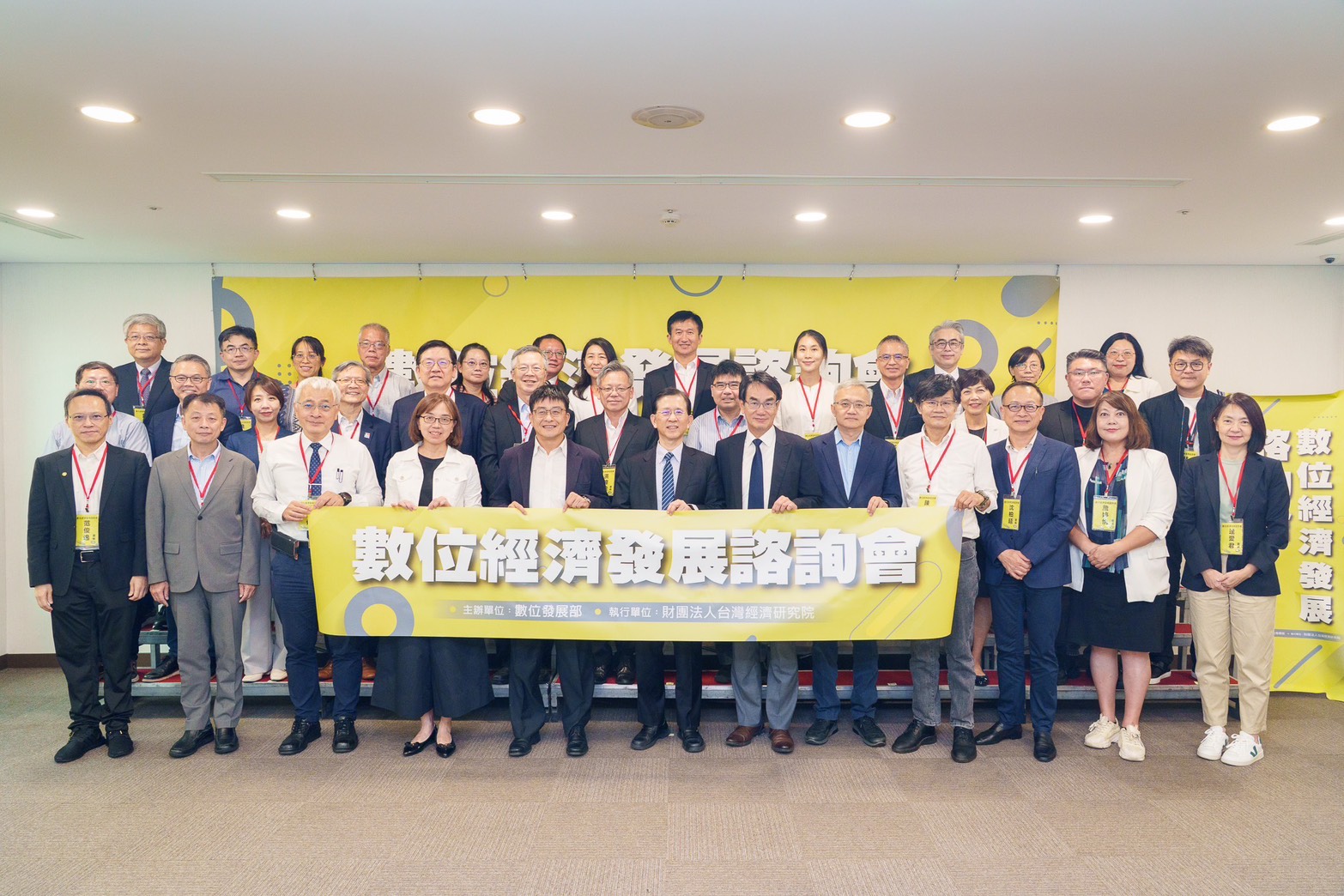Public‑Private Collaboration to Foster Trustworthy AI Governance and Development, The Ministry of Digital Affairs held the Second Digital Economy Development Advisory Council Meeting
The Ministry of Digital Affairs held the second Digital Economy Development Advisory Council Meeting on August 12, inviting experts from industry, academia, and research to build on the foundation established by broad public input from the first meeting. This session focused on two major topics: AI data governance and the development of the AI industry. The goal is to use AI to drive industrial growth, while also addressing data governance and privacy protection. Through collaboration between the public and private sectors, the Ministry is developing digital policies that are inclusive, forward-looking, and widely supported.
Minister Yennun Huang opened the meeting by emphasizing the diverse nature of the digital economy and the need for collective discussion. Taiwan has had a strong foundation in AI and hardware in recent years. The next step is to apply policy tools to promote the development of software and data applications, creating more innovative services that give Taiwan a real chance to become a significant global player in AI applications. The Ministry’s strategies and actions also support the Executive Yuan’s “AI New Ten Major Initiatives,” particularly by promoting the development of a world-class AI software industry and establishing smart government and data governance systems. These efforts align with President Lai’s vision of a “Smart Technology Island” and a “New Digital Society.”
On the topic of AI industry development and how Taiwan can seize global opportunities through software strategy, committee members widely agreed on the need to strengthen the IT and software services industry, focus on AI applications in specific sectors that reflect Taiwan’s strengths, and start early in preparing and training the country’s AI workforce.
To build a thriving AI industry ecosystem, the Ministry is using five primary policy tools, which includes offering free computing resources to startups to reduce early-stage risks; loosening regulations to promote data sharing and accelerate innovation; issuing guidelines for recognizing AI talent to help companies identify and hire the people they need, while also fostering AI development skills through joint public-private training; holding AI networking and matchmaking events to spread practical applications; and allocating NT$10 billion from the National Development Fund to attract private investment and support the expansion of promising AI companies, boosting Taiwan’s international competitiveness. The ultimate aim is to turn IT and software services into Taiwan’s next trillion-dollar industry, with a production value target of NT$800 billion by 2027 and over NT$1 trillion by 2030.
The second major topic was AI governance and how to build a trustworthy AI foundation. In response to committee members’ concerns about data governance and sharing mechanisms, including the preparation of local-language data with Taiwanese sovereignty, ensuring cultural relevance, and protecting data control and privacy, the Ministry emphasized its vision: utilizing data to drive sustainable development in AI and the digital economy. The vision will be achieved through three main strategies—strengthening data infrastructure, enhancing data capabilities, and encouraging innovative applications. These strategies aim to improve the legal and management environment for data, support the development of AI models trained on Taiwan-based data, and foster a vibrant ecosystem for data innovation that also has a positive societal impact.
The Digital Economy Development Advisory Committee has successfully established a communication bridge between the government, industry, academia, and research institutions, thereby strengthening the inclusiveness and depth of policy discussions and decision-making. During this session, committee members made several concrete suggestions, including enhancing the integration of software and hardware in AI, developing niche AI applications with a competitive edge, promoting talent development and management skills, and improving data governance mechanisms. The Ministry stated that it will incorporate these recommendations into its future policy planning to ensure that government actions meet the needs of AI industry development while remaining forward-looking and globally competitive.
